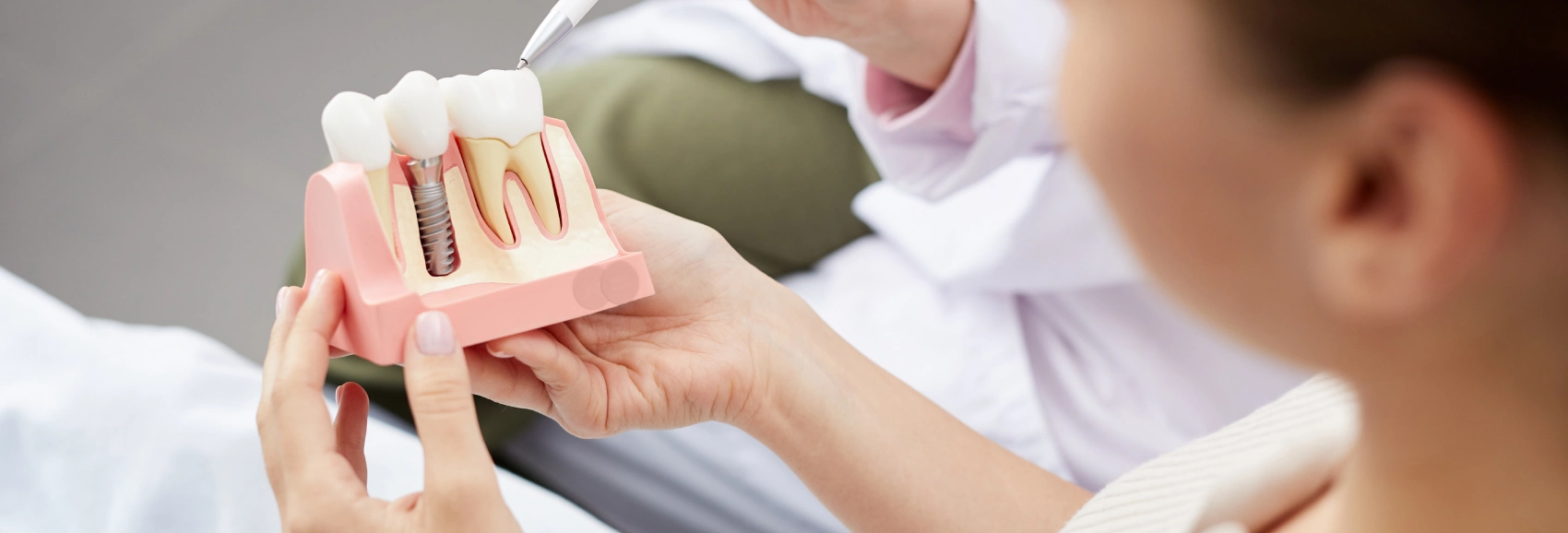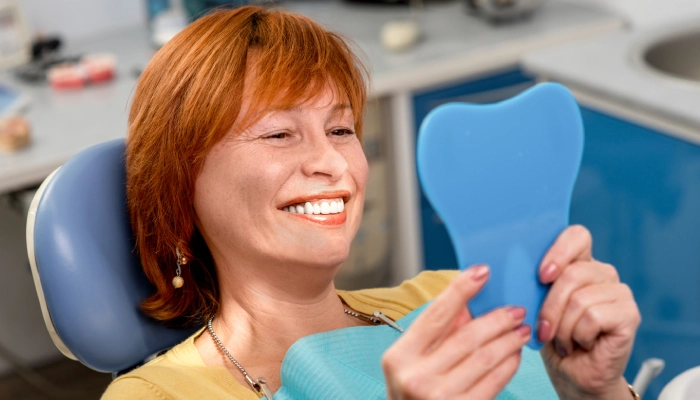
After dental implant surgery, it's crucial to follow a specific diet to promote healing and prevent any complications. Here's a detailed guide to what you can eat after dental implant surgery:
During the first 24-48 hours:
It's crucial to avoid hot foods or beverages, as they can irritate the surgical site and prolong healing. Instead, opt for cool liquids such as water, herbal tea, or cold soup.
Drinking through a straw creates suction, which can dislodge the blood clot forming at the surgical site, leading to complications like dry socket. Stick to sipping from a cup or glass instead.

Focus on eating cold foods that do not involve any chewing and are packed with nutrients:
These are not only delicious but also packed with essential nutrients and vitamins that can aid in recovery. Plus, they're easy on the mouth as they don't require chewing.
Opt for creamy or pureed soups served cold to provide hydration and nourishment without putting strain on your jaw.
Soft and gentle on the mouth, yogurt is also a great source of probiotics, which can promote oral health and aid in digestion.
These treats can provide relief from discomfort and inflammation while also keeping you hydrated.
Another excellent option for staying hydrated and soothing sore gums.
During the first three months:
Soft and protein-rich, eggs are easy to eat and provide essential nutrients for healing and muscle repair.
These dairy products are excellent sources of calcium, crucial for bone health, and support the integration of dental implants with the jawbone.
Soft and comforting, mashed potatoes are easy to swallow and provide a source of energy.
Opt for well-cooked pasta that is soft and easy to chew, avoiding any sauces or toppings that may be too spicy or acidic.
Steer clear of hard foods that require significant chewing, as they can damage the surgical site and impede the healing process. Examples include nuts, raw vegetables, and hard candies.
Foods like chips or crackers can irritate the gums and cause discomfort, so it's best to avoid them during the recovery period.
Spices can increase inflammation and discomfort in the mouth, so it's best to avoid them until the surgical site has healed completely.
Acidic foods and beverages can irritate the surgical site and delay healing. Examples include citrus fruits and tomato-based products.
Both alcohol and tobacco can interfere with the healing process and increase the risk of complications, so it's best to avoid them altogether during recovery.
Take any prescribed medications and follow all guidelines provided by your dentist or oral surgeon to ensure a smooth recovery.
Apply ice packs to the affected area to reduce swelling and alleviate discomfort as needed.
Gently brush your teeth and rinse your mouth with saltwater as directed by your dental professional to keep the surgical site clean and prevent infection.
Keep all scheduled appointments with your dentist or oral surgeon to monitor your healing progress and address any concerns promptly.
Rest and avoid activities that may put pressure on the surgical site to promote optimal healing.
Drink plenty of water to aid in the healing process and prevent dehydration, which can hinder recovery.
As you navigate through your recovery journey after dental implant surgery, remember that your commitment to following post-operative care instructions is crucial. To optimize your healing process and ensure the long-term success of your dental implants, take proactive steps today. Reach out to Dr.Ziad Eskandar for personalized guidance and support. Together, we can help you achieve a healthy and vibrant smile that lasts a lifetime. Don't hesitate to take the next step towards a brighter future; your smile deserves it! Visit Zircteeth for more information and assistance.
